Financial fair play: All you need to know about how it works
- Published

Manchester City have been restricted to a 21-man squad for this season's Champions League for breaching FFP rules
We are hearing more and more about financial fair play (FFP) in football, with clubs across Europe already facing punishments for breaching its rules, but how does it work?
BBC Sport explains why it was brought in and how clubs in breach of the regulations can be punished.
1. What exactly is FFP?
It was introduced by Uefa, external to prevent clubs that qualify for its competitions from spending beyond their means and stamp out what their president Michael Platini called "financial doping" within football.
Platini believes the big spending of some clubs is ruining the game and feels that the level of debt carried by many is unsustainable.
2. What must clubs do to comply with FFP?
Uefa made its first FFP ruling in April based on club accounts from the 2011-12 and 2012-13 seasons.
Clubs can spend up to 5m euros (£3.9m) more than they earn per assessment period, although, under this monitoring period, total losses of 45m euros (£35m) were permitted as long as clubs had owners who could cover such amounts.
From now on, the assessment will be made over a rolling three-year period.
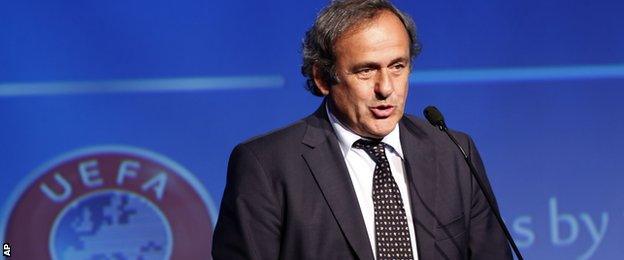
Uefa president Michel Platini says "the framework for FFP must be dynamic and it must evolve constantly"
For 2014-15, losses will still be limited to 45m euros (£35m).
For 2015-16, the monitoring period will again cover the previous three seasons, but the limit will drop to 30m euros (£25.5m).
The pattern is repeated in 2016-17 and 2017-18.
In the following years the limit will be lower, with the exact amount still to be decided.
Clubs are also obliged to meet all their transfer and employee payment commitments at all times.
3. What is covered by FFP?
Clubs need to balance football-related expenditure - transfers and wages - with television and ticket income, plus revenues raised by their commercial departments. Money spent on stadiums, training facilities, youth development or community projects is exempt.
4. Who polices the regulations?
The Club Financial Control Body (CFCB) was set up by Uefa to oversee the application of the its Club Licensing System and Financial Fair Play Regulations.
5. What are the possible sanctions for clubs in breach of FFP?
"The atomic bomb is a ban from European competition," said Jean-Luc Dehaene, the first chairman and chief investigator of CFCB, back in 2011 (Dehaene died in May 2014).
The CFCB's investigatory chamber can offer clubs settlement agreements, with potential punishments including warnings, fines, withholding prize money, transfer bans, points deductions, a ban on registration of new players and a restriction on the number of players who can be registered for Uefa competitions.
6. So how does that affect big European teams?
Nine clubs were found to have breached the FFP criteria in the first assessment period, most notably Manchester City and Paris St-Germain, and a range of fines and sanctions were imposed.
City were fined £49m, £32m of which was suspended, had spending restrictions imposed and could only name a 21-man Champions League squad for 2014-15.

Paris St-Germain failed FFP when their £167m sponsorship contract with the Qatar Tourism Authority was ruled to have an unfair value
They had posted combined losses of £149m for the first two seasons assessed - £97m in 2012 and £51.6m in 2013 - and the CFCB ruled that not enough of their costs could be attributed to a new training complex and youth development investment.
Qatar-owned Paris St-Germain received a similar punishment to City. They were deemed to have failed the test when the CFCB decided their back-dated £167m sponsorship contract with the Qatar Tourism Authority, which wiped out their losses, had an unfair value.
7. Can punishments be overturned?
We will see. Jean-Louis Dupont, a lawyer who helped win the landmark Bosman case, has launched a legal challenge with the European Commission, claiming that FFP breaches European competition law.
An independent Manchester City supporters' club, which has 15,000 members, has voted to back the complaint.
Clubs could also appeal to the Court of Arbitration for Sport.
8. And why are Liverpool being investigated?
Because they posted losses of £49.8m in 2012-13 and £41m in 2011-12 and are back in European competition this season having qualified for the Champions League.

Liverpool face investigation for potentially breaching FFP
The Reds, along with Monaco, Inter Milan, Roma, Besiktas, FC Krasnodar and Sporting Lisbon - none of whom took part in European competition in 2013-14 - have submitted their accounts to the CFCB but have been told to submit further information on their finances in October and November.
After signing a series of lucrative commercial deals over the past 18 months, Liverpool are confident they have adhered to the FFP regulations.
9. Is there just one form of FFP?
No. The Premier League has brought in its own form of financial regulation which is not as stringent as Uefa's FFP.
Clubs cannot make a loss in excess of £105m across the 2013-14, 2014-15 and 2015-16 seasons (as with FFP, investment in infrastructure and youth development is exempt).
Any club that posts losses in excess of that figure could face severe penalties, including a points deduction.
A loss between £15m and £105m has to be guaranteed by club owners.
The league has also introduced a short-term cost control measure in which clubs are restricted in the amount of increased PL central funds that can be used to improve player wages.
The increase in wages from the fund was limited to £4m in 2013-14, £8m in 2014-15 and £12m in 2015-16 (wages can be increased from clubs' own commercial revenue).
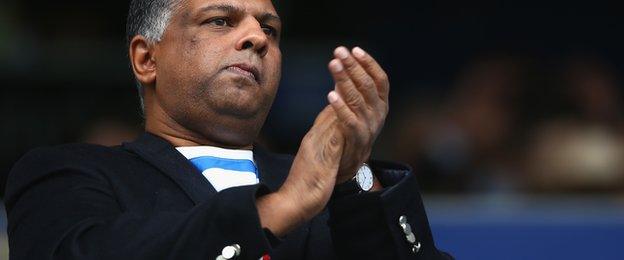
QPR owner Tony Fernandes says he will appeal against any FFP punishment imposed by the Football League
The measure applies only to clubs with a player wage bill in excess of £52m in 2013-14, £56m in 2014-15 and £60m in 2015-16.
Meanwhile, the Football League and its clubs have agreed on a FFP framework, external across all three of its divisions.
Championship clubs are permitted losses of £8m (£5m funded by shareholders) in 2013-14 (accounts must be submitted by 1 December).
They have to reduce them, season-on-season, to a maximum of £5m (£3m funded by shareholders) by 2015-16.
Clubs promoted back to the Premier League who exceed those losses are subject to a fine.
10. Any clubs at risk of failing this test?
Most notably, QPR. They posted losses of £65.4m, with a wage bill of £68m, in their 2012-13 accounts.
Chairman Tony Fernandes has indicated he would appeal against a fine from the Football League, which would be around £54m if losses for Rangers' promotion season matched the 2012-13 figures.
There is a sliding scale on the next £10m of losses, with a maximum fine of £6.681m. Once losses exceed £18m, the fine is imposed on a strict pound-for-pound basis.
Should there be an overall loss of £30m, the fine would be almost £19m. If it was £50m, the figure would be nearly £39m.
If the club don't pay, the league can block entry to its competitions, which theoretically could force QPR down to the Conference if they were relegated from the Premier League in 2014-15.
11. And what about Leagues One & Two?
These clubs already have a limit on spending as a percentage of turnover.
Any club that is deemed to have breached the permitted spending threshold can be subject to a transfer embargo.
- Published25 September 2014
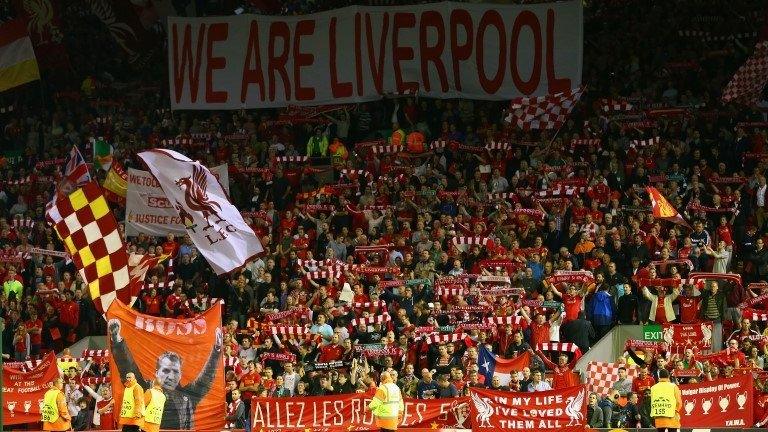
- Published24 September 2014

- Published20 September 2014
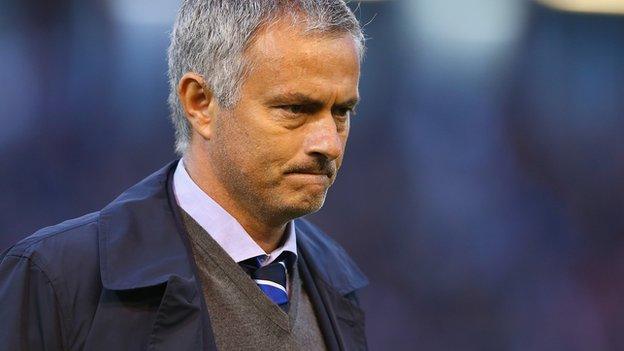
- Published9 September 2014

- Published16 May 2014
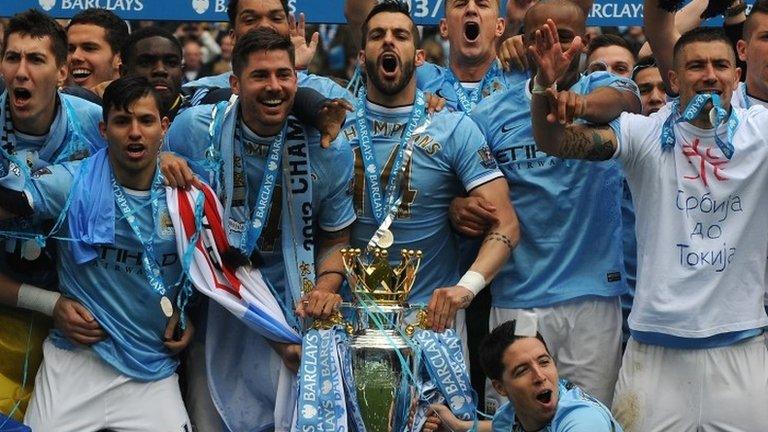
- Published16 August 2011
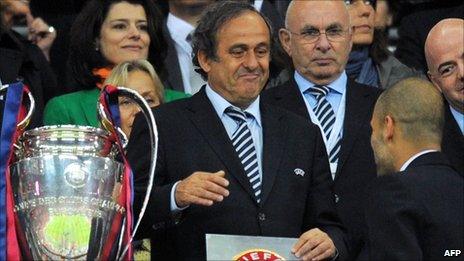
- Published7 June 2019
